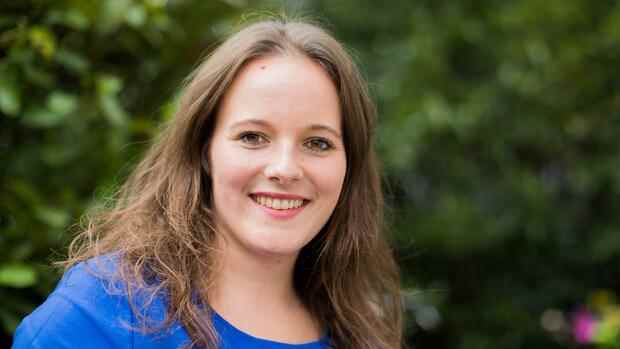“Especially with a view to current issues such as rising costs and energy insecurity, the SPD was not able to convince sufficiently.”
(Photo: dpa)
Berlin The federal chairwoman of the Jusos, Jessica Rosenthal, has called for consequences from the poor performance of the SPD in the state elections in North Rhine-Westphalia. “Especially with a view to current issues such as rising costs and energy insecurity, the SPD has not been able to convince sufficiently,” Rosenthal told the Handelsblatt. “Our fight to relieve the burden on small and medium-sized incomes in particular must therefore be all the stronger and more determined.”
Specifically, Rosenthal called for further relief for pensioners, recipients of unemployment benefit 1 and students. “The massive price speculation must finally be put a stop to,” said the Juso boss. Rosenthal is alluding to excessive price increases by companies for energy sources or grain.
SPD co-leader Lars Klingbeil advocates a stronger focus on social issues. However, he did not commit himself to further concrete relief for citizens in view of rising prices. He merely pointed out that the federal government had initiated many measures that would now gradually come into force. “First of all, it’s about communicating more strongly what we do good,” said Klingbeil. For him, that was the lesson from the NRW election.
SPD head of state Thomas Kutschaty stated that voters were primarily concerned with the issue of the Ukraine war and rising inflation and energy prices. The SPD must now focus more on these aspects. “Many people are worried about whether they can still afford life like this.”
Top jobs of the day
Find the best jobs now and
be notified by email.
The SPD fell to 26.7 percent of the votes cast in the state elections in the most populous federal state. This is their worst result in the country’s history. Klingbeil therefore sees no far-reaching consequences for the traffic light coalition in the federal government, which, in addition to the SPD, includes the FDP, another loser in the election. The Greens, on the other hand, were able to improve their result significantly.
Greens open to further relief
On Monday, FDP leader Christian Lindner saw dissatisfaction with the overall package of planned relief as one of the reasons for his party’s heavy losses. “We must also draw our conclusions from this for future political projects of the coalition in Berlin.”
The Greens were open to further relief because of the persistently high energy prices. “I assume that this topic will also be addressed in the next coalition committee,” says the party’s co-leader, Omid Nouripour. The traffic light coalition has already decided on two relief packages totaling around 37 billion euros. However, inflationary pressure remains high. The traffic light coalition will readjust if necessary.
More on the subject of the NRW election:
The Juso boss expressed concern about the turnout in NRW. “A historically low turnout of 55.5 percent is shocking and should be a reminder to all democratic forces,” Rosenthal said.
She blamed the SPD for this development. “Many people didn’t feel represented by us and preferred to stay at home,” says Rosenthal. “Especially in times like these, when democracy is being attacked and right-wing ideologies are gaining strength, the SPD must be able to inspire people to go to the polls.” Unfortunately, that didn’t work out.
The politics professor Klaus Schubert from the University of Münster comes to a similar conclusion as Rosenthal. Above all, the SPD had a hard time mobilizing its clientele, he said.
It may also have been a mistake here that SPD top candidate Kuchaty brought in Chancellor Olaf Scholz (SPD) towards the end of the election campaign. Scholz is seen by some as “rather weak and not very decisive”. “That may have kept some of the SPD clientele from voting,” said Schubert.
More: NRW election: These are the lessons of the SPD for the federal government
